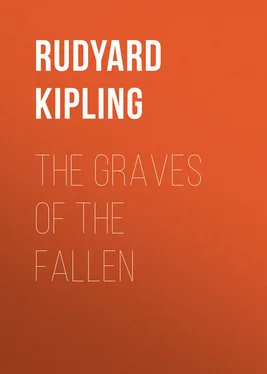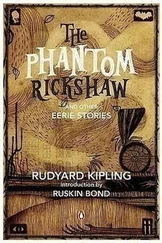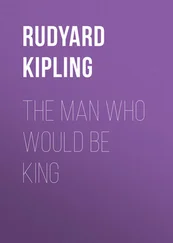Rudyard Kipling
The Graves of the Fallen
This Descriptive Account of the work of the Imperial War Graves Commission was written by Mr. Rudyard Kipling at the Commission’s request.
T HECommission consists of: —
The Secretary of State for War.
The Secretary of State for the Colonies.
The Secretary of State for India.
The First Commissioner of Works.
The Hon. Sir George Perley, K.C.M.G. (appointed by the Government of Canada).
The Right Hon. Andrew Fisher, P.C. (appointed by the Government of Australia).
The Hon. Sir Thomas Mackenzie, K.C.M.G. (appointed by the Government of New Zealand).
The Right Hon. W. P. Schreiner, P.C., K.C., C.M.G. (appointed by the Government of the Union of South Africa).
The Hon. Sir Edgar Bowring (appointed by the Government of Newfoundland).
and the following members who accepted the invitation to help in this work, and were appointed by Royal Warrant: —
Sir William Garstin, G.C.M.G., G.B.E.
Mr. Harry Gosling, C.H., J.P.
Mr. Rudyard Kipling.
General Sir C. F. N. Macready, G.C.M.G., K.C.B.
General Sir Herbert C. O. Plumer, G.C.B., G.C.M.G., G.C.V.O.
Admiral Sir Edmund S. Poë, G.C.V.O., K.C.B.
Major-General Fabian Ware, C.B., C.M.G.
All letters should be addressed to the Secretary, Imperial War Graves Commission, Winchester House, St. James’s Square, S.W. 1; and not to any individual member of the Commission.
T HEorigin and development of the Imperial War Graves Commission is very simple. In the first days of the war the different armies engaged created organisations, under the direction of the War Office, to register, mark, and tend the graves of British soldiers, as well as to answer inquiries from relatives, and, where possible, to send them photographs of the graves. Later, a National Committee was constituted, which, on the suggestion of the Prince of Wales, who took a keen personal interest in the work, was expanded into an Imperial Commission, representing the Dominions, India, the Colonies, the fighting Services, Labour, the great public departments interested, and the British Red Cross, which latter had supplied, as it still does to a considerable extent, the funds for photographing and planting the graves.
T HEfinance of the Commission is Imperial. All parts of the Empire have generously and unreservedly promised to bear their share of the expenses. The Imperial War Conference, having considered the proposals of the Commission, passed the following resolution on June 17, 1918: “The Conference desires to place on record its appreciation of the Labours of the Imperial War Graves Commission, and is in favour of the cost of carrying out the decisions of the Commission being borne by the respective Governments in proportion to the numbers of the graves of their dead.”
W ITHthe growth of the war the Commission’s work naturally covered every part of the world where the men of the Empire had served and died – from the vast and known cities of our dead in Flanders and France to hidden and outlying burial-grounds of a few score at the ends of the earth. These resting-places are situated on every conceivable site – on bare hills flayed by years of battle, in orchards and meadows, beside populous towns or little villages, in jungle-glades, at coast ports, in far-away islands, among desert sands, and desolate ravines. It would be as impossible as undesirable to reduce them all to any uniformity of aspect by planting or by architecture.
Конец ознакомительного фрагмента.
Текст предоставлен ООО «ЛитРес».
Прочитайте эту книгу целиком, купив полную легальную версию на ЛитРес.
Безопасно оплатить книгу можно банковской картой Visa, MasterCard, Maestro, со счета мобильного телефона, с платежного терминала, в салоне МТС или Связной, через PayPal, WebMoney, Яндекс.Деньги, QIWI Кошелек, бонусными картами или другим удобным Вам способом.












